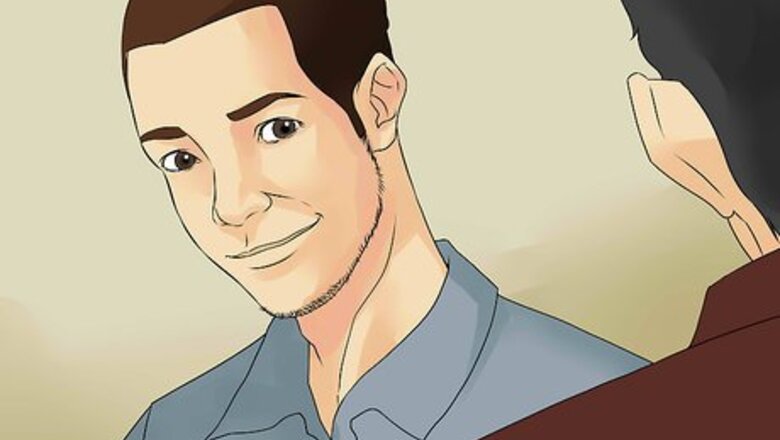
views
Ignoring Someone in Conversation

Smile. Putting on a smile gives you a friendly demeanor, and suggests to the other person that you are happy talking to them.

Make eye contact. Looking another person directly in the eye suggests attentiveness, and creates a connection. You don't need to stare at the other person. Even when paying attention, this is over-the-top and aggressive. Occasionally making eye contact shows the other person you are paying attention.
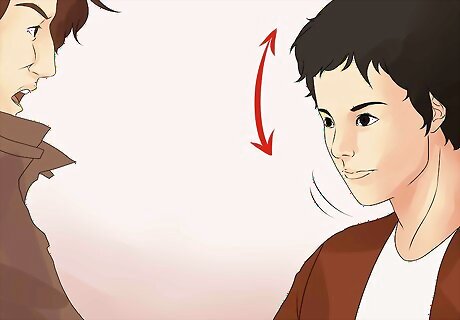
Nod your head. Occasional slow nodding as the other person talks makes it seem like you are agreeing with them. You don't want to do this throughout the whole conversation, or too quickly, which will make you look impatient.

Mirror their body language. Use your body to mimic what the other person is doing. This doesn't necessarily mean copying specific gestures, but look at things like the way they are sitting or where their arms are positioned. Try to position your body in a similar way.
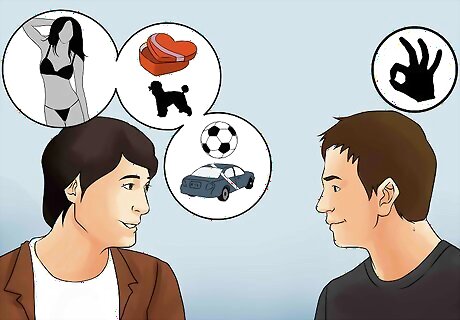
Speak occasionally. You don't need to respond directly to anything the person has said. A generic leading phrase like "That's interesting" or "Tell me more" will give the other person room to keep talking. Phrases like this are signs of active listening, and the other person may interpret them that way. Open ended questions like "What do you mean by that?" or "Why do you think that is?" will give the person an opening to continue talking, which prevents you from having to join in. Other vague phrases or sounds, like "Okay" and "Mmm-hmm," are good ways to encourage the other person to continue talking without you having to contribute.
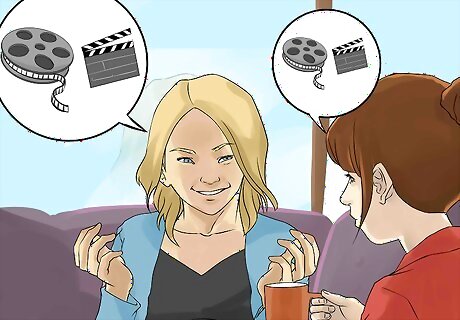
Repeat what the other person says. Try to use the last phrase the other person said, and repeat it as well as you can. It doesn't need to be too long, or even a full sentence (you'd probably need to really pay attention for that). You don't need to do this all the time, just on occasion. This will make it sound as if you are agreeing with, or thinking about, what the other person just said. For example, if the person has been talking about deep-sea fishing, you could say "So you really caught a shark?" Then you can add an open-ended question like "What was that like?"
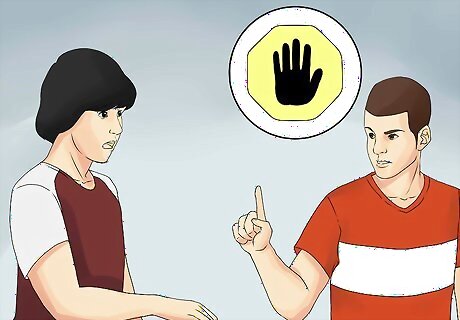
Ask to be excused for a moment. This can buy you time to do something else for a few moments, while letting the other person believe that you will let them restart. It is less rude to a friend or acquaintance to let them know you are putting them on hold.
Getting Out of a Conversation
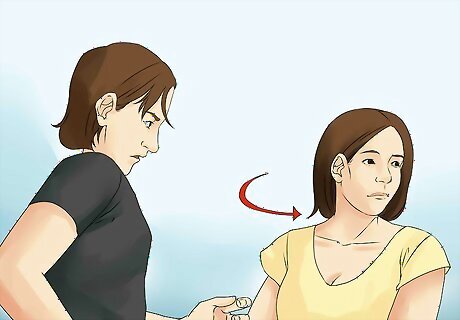
Give body language cues. Start changing your body position to let the other person know you are looking to get out of the conversation. Avoid eye contact, shift your body into facing a different direction, or move into a more uncomfortable position like the edge of your seat. Generally this is a good way to start winding down conversation, not just ending it, as body language cues can sometimes be vague.
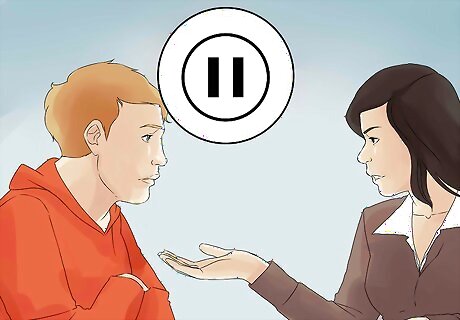
Find a break in conversation. Any pause or lull in the action should do. Usually you can tell when the other person uses words like "well" or "anyway" as space-fillers. This can give you an opportunity to start a quick good bye.
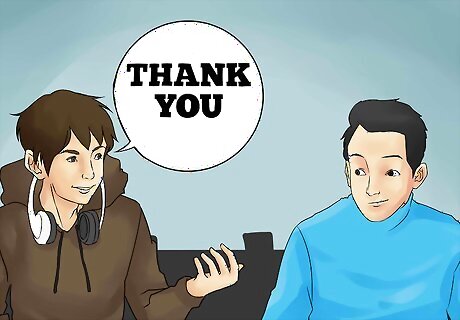
Say thank you. Thanking someone for their time, company, or information is gracious and good manners. You don't need to talk about enjoying the conversation if you didn't, but a simple thank you is polite, and suggests to the other person that you valued the interaction.
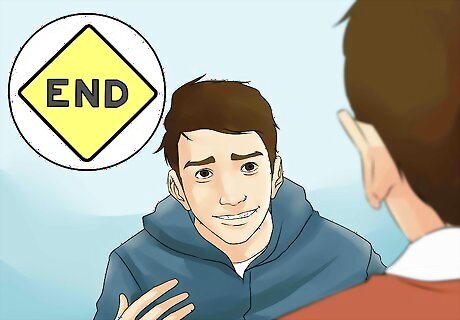
Use an exit line. It is always better to emphasize something you need or are trying to do. This can be something like "I need to get this project done soon" or "I really wanted to talk to this person as well." Exiting for something you need makes the exit appear to be more about you than the other person. If you started the conversation, a line like "I just wanted to see how things were going" or "I'm glad we could catch up" can signal to the other person that the conversation has reached a good stopping point. Make sure your exit line is honest. Lying is a good way to get yourself caught, which will embarrass both of you later.
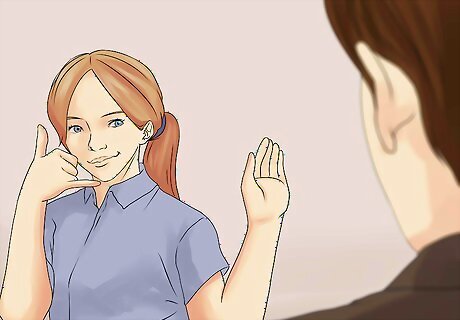
Offer a consolation. If it someone you think you may want to talk to later, offer to keep in touch. If the person has been discussing a hobby or interest, offer to share information with someone else you know who might be interested. You don't need to have been paying attention to the details for this, just remember the basic thrust of what the other person was talking about.
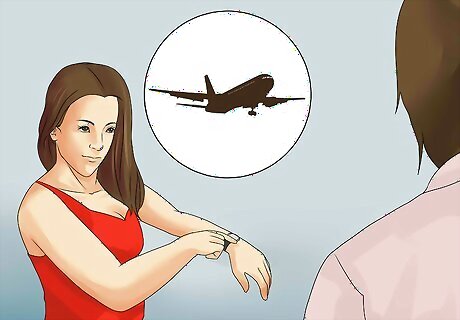
Go to your destination. If you left the conversation by telling the other person you had somewhere to be, or something to do, get on it. If you suddenly delay, or wind up talking to someone else, then it will look like you were dodging the other person.
















Comments
0 comment